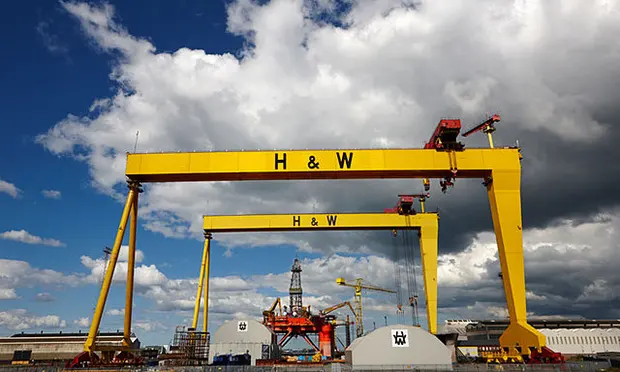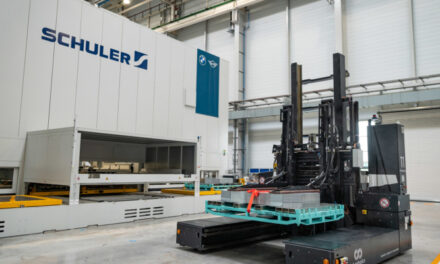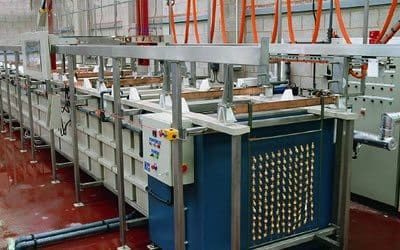Belfast shipbuilders famous for the Titanic suffer loss of revenues as it prepares for MoD contract
Harland & Wolff has been hit by supply chain delays and order cuts worth at least £34m, in a blow for the owner of Belfast’s historic shipyard as it prepares to restart shipbuilding under a Ministry of Defence contract.
The company said it will generate revenues of between £29m and £31m for 2022, significantly below the £65m-£75m it said it expected in September.
Its shares, which are listed on London’s Alternative Investment Market, dropped by 21% on Friday during shortened hours ahead of the new year holiday.
The Harland & Wolff (H&W) name is one of the most storied in British industry, although it is most closely associated with the Titanic, which infamously sank in 1912 on its maiden voyage. In November the UK government announced that shipbuilding would restart at the yard after 20 years of focusing mainly on repairs.
The company is also expected to benefit significantly as part of the team that won the bid for the £1.6bn contract to manufacture the UK’s fleet solid support ships, which are designed to provide munitions, stores and provisions to the Royal Navy’s aircraft carriers, destroyers and frigates deployed at sea. The final assembly of the ships will take place in Belfast.
The company’s yellow H&W cranes – named Samson and Goliath – have been afixture of Belfast’s skyline since 1974, although the name itself nearly disappeared in 2019 after a predecessor company collapsed into administration. The assets were bought by Infrastrata, a listed company that later rebranded to Harland & Wolff.
The Belfast site is not the only historic shipyard bought by the company. It also bought Methil on Scotland’s Firth of Forth estuary, Appledore in North Devon, and Arnish Point on Scotland’s Isle of Lewis.
The company has focused on work for the offshore wind industry, as well as refitting cruise ships and carrying out works for navies.
John Wood, the group’s chief executive said it was “disappointing” to miss the 2022 targets, which he blamed on “timing issues”. However, he said: “We have made significant progress over the last 12 months, and I am confident that we will see a robust 2023.”
H&W said the much lower revenue still represented a 56% increase in turnover when compared to the 17-month period ending 31 December 2021, when it made revenues of only £18.5m.
It is hoping to increase the size of a borrowing facility with lender Astra Asset Management from £70m to £200m in preparation for the UK contract.
About £20m in revenues from refitting a former Ministry of Defence ship for Lithuania’s defence forces will be delayed until next year, while the company will lose or delay revenues worth another £8m to £10m because of “geo-political uncertainties and global inflation”. It will also miss out on £5m from a cancelled contract with Saipem, an Italian oil and wind energy company.
To read the original article please click here: https://www.theguardian.com/business/2022/dec/30/harland-wolff-hit-by-up-to-34m-order-cuts-and-supply-chain-delays





